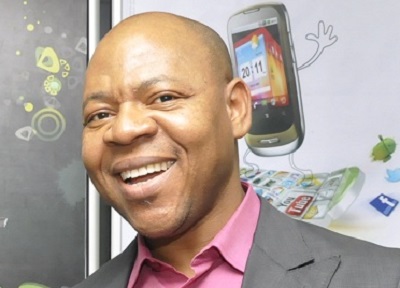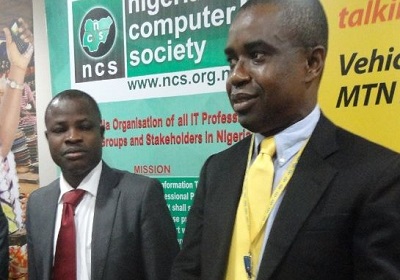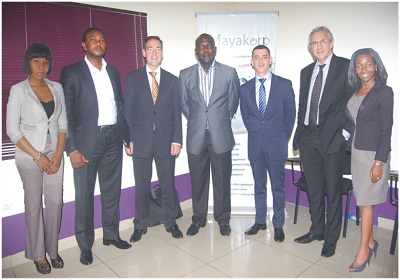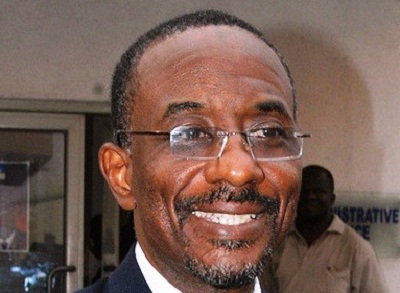News
NigComSat Corporation Bill Rings Controversy
Industry experts have said that autonomy for Nigerian Communication Satellite Limited (NigComSat) was an invitation to failure and creation of another white elephant destined to go the way of the now moribund, Nitel, Nigeria’s beleaguered national carrier.
Failing to find justifiable reasons for the demands of autonomy by NigComSat, the experts said that the passage of the bill amounts to creation of a parallel space agency that will compromise the National Space Programme of the Federal Government.
The experts which gathered in Lagos tore the bill apart and insisted that the passage of the bill will also be a wasteful duplication as the functions of the proposed Corporation are being performed by the Nigerian Space Research and Development Agency.
Dr. Emmanuel Ekuwem, chairman Teledom Group fired the first salvo and cautioned that the bill, when passed, might give NigComSat the autonomy to operate as a business venture and as a regulator.
He noted that government has no business in doing business.
Ekuwem’s comment drew the ire of Timasaniyu Ahmed-Rufai, the chief executive officer of NigComSat who clarified that the bill, in contents, does not have anything to imply that the bill will grant NigComSat a regulatory status as it has no operator to compete against.
“Contrary to the thinking of the business community, government has a business in business,” He added
Ahmed-Rufai also stressed that the bill will build NigComSat into maturity before becoming players like the Intelsat and other global satellite companies owned by the governments.”
He had immediate support from Yele Okeremi , member, Executive Committee of Institute of Software Practitioners of Nigeria (Ispon).
He said: “We must perceive satellite communication as critical national infrastructure which requires everything to protect including legislation and we must sit down to see that we do everything to see that this bill become a law.”
He listed technology, social perception and legislation as the tripod that must be present before a revolution can happen.
Victor Nwakesi , representative of Olisa Agbakoba & Associates, the law firm responsible for the drafting of the NigComSat bill, also explained that the bill is much desired and that passage will aid Nigeria’s emerging development issue.
According to him, the contents of the NigComSat bill have been developed to align with what the laws allow. “NigComsat should be protected in the best interest of the citizens,” he said.
Eng. Lanre Ajayi, president, Association of Telecoms Companies of Nigeria and chairman of the occasion, noted that there was a need to guide the Senate, as citizens, to let them know the need for Satellite Company to be able to run businesses on its own with less government bureaucracy.
Ajayi noted that satellite technology is a very desirable technology in Nigeria, noting however, that this was not to say that other terrestrial technologies are not very relevant but they are complementary.
“The major advantage of satellite is its ubiquitousness. In a country like ours, where we have many rural communities, satellite becomes an option. If we must progress, we cannot run away from developing satellite technology and government must support this.” Ajayi
He, however, expressed the view that NigComSat might go the way of Nigerian Telecommunications Limited, “because with the Act, it appears we are now putting it in the hands of the law makers.”
However, Bayo Banjo, president, Nigeria Internet Group, affirmed that the bill will transform NigComSat to a fully-owned government company.
“I do not see a reason for this bill because the company is already a limited liability. The bill is not in the interest of Nigeria. It will not serve the purpose of Nigerians.” Banjo noted.
He submitted that rather than having the NigComSat bill passed, it should be jettisoned with the best option to have it privatised.
Ben Nwaroh, partner, Crimson Partners Barristers and Solicitors stood up to say that the proposed bill is contrary to the new national ICT policy approved by the federal executive council.
Ahmed-Rufai sharply shouted him down in a desperate move to starve off further attacks on the bill.
He disclosed that the bill seeks to establish an Act to establish the NigComSat Corporation empowered to engage in, purchase and otherwise acquire or take over the assets, business, company, firm or persons and act in furtherance of all and any business associated and or relating to the satellite industry.
The bill has already been passed by the lower legislative arm, the House of Representatives as at March 2012.
The bill is now set for deliberation at the Senate before it will eventually be sent to the president for assent and the bill becoming an Act.
Ahmed-Rufai, said the Bill, if passed into law, will allow NigComSat Limited to engage in international business partnership for the benefit of the whole country.
He urged stakeholders in the nation’s Information and Communication Technology to support the bill, “as a corporation, the satellite company in about three to four years, would have achieved global satellite coverage.”
News
NFIU Seeks Advanced Technology to Combat Financial Crimes in Nigeria
The Nigerian Financial Intelligence Unit (NFIU) is ramping up efforts to combat financial crimes through advanced technology and enhanced collaboration as part of its drive to remove Nigeria from the Financial Action Task Force (FATF) grey list.

Speaking at a high-level conference organized in partnership with the London Stock Exchange Group (LSEG) Risk Intelligence, in Lagos on Thursday, NFIU’s General Counsel, Felix Obiamalu, revealed that the agency had established a special unit, “Emerging Technologies and Innovations sector” dedicated to integrating cutting-edge tools into its operations.
Obiamalu explained that the NFIU was automating processes and developing software to monitor and track financial crimes. “Criminals continuously exploit gaps in the system, but we are upgrading our capabilities and working with global software developers to stay ahead,” he said.
“The LSEG Risk Intelligence also have sophisticated technology tools that we can also leverage on to combat these financial crimes. That is the essence of such collaborations as the fight cannot be won in isolation,” he added, highlighting the role of partnerships in addressing the nation’s anti-money laundering and counter-financing of terrorism (AML/CFT) challenges.
Since being greylisted in February 2023 due to deficiencies identified during FATF’s mutual evaluation process, Obiamalu stressed that relevant stakeholders were working relentlessly.
“This conference is part of efforts to improve interagency cooperation, enhance information sharing, and ultimately build a sustainable AML/CFT framework,” he said, noting that the focus is not only on exiting the grey list but also on creating a system that can effectively address future challenges.
Che Sidanius, the Global Head of Financial Crime at the London Stock Exchange Group, highlighted the broader economic implications of Nigeria’s greylisting. “Being greylisted has a significant impact on foreign direct investment and how Nigeria is perceived internationally.
However, the commitment from both the government and private sector to address these challenges is clear, and that is the first and most critical step,” Sidanius remarked. He emphasized the need for capacity building, robust data utilization, and actionable strategies to strengthen existing frameworks.
The Chief Executive Officer of the NFIU, Hafsat Bakari, earlier in her address stressed that a coordinated approach is vital for success. “No single organization, public or private, can tackle the myriad financial crime challenges we face in isolation. Only through structured cooperation can we succeed,” she said.
Bakari pointed to the Bank Verification Number (BVN) initiative, partnership between the Central Bank of Nigeria (CBN) and commercial banks among other measures as an effective example of PPPs bolstering Nigeria’s AML/CFT framework.
“We, at the NFIU, recognize that gatekeepers in the financial and designated non-financial sectors are often the first to become aware of emerging trends and typologies. They have a wealth of intelligence and information that can contribute to more effective law enforcement responses across a variety of predicate crimes.
“It is therefore critical that we ensure a properly joined up approach, and this is reflected as a priority in our National AML/CFT/CPF Strategy. Therefore, our gathering today could not have come at a better time,” she added.
News
LASAA Enhances Operations with New Porta Cabin Offices in Lagos
Lagos State Signage and Advertisement Agency (LASAA) has launched new porta cabin offices located in Badagry Local Government Secretariat, Ikorodu Local Government Secretariat, Lagos Television premises and LASAA warehouse.

L-R: The General Manager, Radio Lagos, Mr Olajide Lawal; Head of Project Coordination and Local Government Affairs, Lagos State Signage and Advertisement Agency (LASAA), Mrs. Abimbola Odunmbaku; Managing Director/CEO, LASAA, Prince Fatiu Akiolu; Permanent Secretary, Lagos State Ministry of Information and Strategy, Mr Olumide Sogunle; Director of Administration and Human Resource, Lagos Television, Mrs. Oluwatoyin Ayanbadejo; Senior Special Assistant to the Governor of Lagos State on LASAA, Hon. Kunle Dabiri; and Deputy General Manager, Operations and Innovations, Mr Gbolahan Dixon during the Agency’s commissioning of new offices (porta cabins) for operational expansion in Lagos recently.
This initiative aims to bring the Agency closer to its many clients and improve the regulation of outdoor advertising landscape, ultimately optimizing revenue generation for the State.
Speaking at the launching of the new offices, the Managing Director/CEO of the Agency, Prince Fatiu Akiolu said they are extensions of the Agency’s branches across the State.
According to him, “The porta cabins launched are not just physical structures, they represent our ongoing commitment to enhancing the efficiency and effectiveness of our operations.”
The MD explained that, with the rapid growth of our city and the increase in the formation of businesses, Lagos has become a dynamic hub for innovation and creativity, and with that comes the need for sophisticated solutions to manage our operations better to meet the rise in the display of business signs in the State.
In his words, “Strategically situating the offices is important to the Lagos State Government for revenue optimization as it will impact positively on the development of the State, as we demonstrate our support for Mr Governor, Mr Babajide Sanwoolu towards actualizing a much greater Lagos.”
He further explained that, “It has become necessary for the Agency to provide these decent portal cabins for the convenience of our staff members and by extension, for our revered walk-in clients who visit to register their business signs and make relevant enquiries.”
He averred that, “These portal cabins symbolize a major step forward in our operations at LASAA. The provisions reflect our dedication to embracing innovation and modernization to improve our service delivery. With these new facilities, we are not just upgrading our operational capabilities; we are also ensuring that our processes are more efficient, accessible, and transparent. Each facility is fitted with air-conditioners, computers, tables, chairs, bathrooms, and kitchens,” Prince Fatiu stated.
Also speaking, the Deputy General Manager, Operations and Innovations of LASAA, Mr Adegbolahan Dixon made it known that it has become imperative to open new porta cabin offices to complement the existing ones as some local governments in the State do not have spaces where they can construct new office buildings.
According to him, “We decided to approach some sister agencies with spaces within their premises to set up the porta cabin offices to reach more clients.”
He said that, “The overriding idea is to be close to our existing and potential customers instead of them going to our head office to transact business. With these offices that are close to them, they can interface with our members of staff who will guide them on how to register and obtain permits for their business signs.”
Dixon also revealed that the Agency has opened a good number of the offices this year which are effectively serving a purpose and that more will be opened for operational expansion next year.
The Lagos State Signage and Advertisement Agency (LASAA) was established by the Lagos State Structures for Signage and Advertisement Agency Law, 2006 and the Amendment, thereto is responsible for regulating and controlling outdoor advertising and signage displays in Lagos State.
In its commitment to excellence, the Agency plays a crucial role in shaping the visual landscape of Lagos through effective regulation and innovative solutions.
News
Electricity Subsidy Soars to ₦2.4 Trillion Despite Tariff Reforms
Federal Government’s electricity subsidy has surged by 269%, rising from ₦650 billion in 2023 to an estimated ₦2.4 trillion in 2024.

This increase comes despite the implementation of the Band A tariff service category in April, which was expected to reduce subsidy obligations by ₦1.14 trillion.
Dr Yusuf Ali, Commissioner for Planning, Research, and Strategy at the Nigerian Electricity Regulatory Commission (NERC), revealed this during a presentation at PwC’s Annual Power and Utilities Roundtable in Lagos on Friday.
Speaking on “Reigniting Hope in Nigeria’s Electric Power Sector,” Dr Ali noted that macroeconomic shocks, particularly foreign exchange instability, have driven cost-reflective tariffs up by 118% between 2023 and 2024, contributing to the steep rise in subsidies.
“So right now, the best estimate that we have for 2024 is that the cumulative subsidy for the year will be ₦2.4 trillion,” Dr. Ali said.
He explained that while the government aimed to significantly reduce subsidies through tariff increases in April 2024, the challenging macroeconomic environment has hindered tariff payments.
“Without the tariff reforms implemented between 2020 and 2023, annual subsidies would have risen significantly, especially amidst the macroeconomic shocks of the past 20 months,” he added.
Minister of Power, Chief Adebayo Adelabu, represented by his Chief Technical Assistant, Adedayo Olowoniyi, highlighted the government’s efforts to address the challenges in the power sector. He emphasized that the current administration, under President Bola Ahmed Tinubu, recognizes energy as critical to economic growth and job creation.
“To ensure the sustainability of the energy sector, the Federal Government of Nigeria has implemented a multi-pronged approach spanning across legislation with the enactment of the Electricity Act 2023, policy framework with the development of an Integrated National Electricity Policy, and infrastructure development programmes to expedite expansion,” he said.
The minister outlined additional strategies, including leveraging bilateral funding, commercializing the sector to enhance viability, and collaborating with development partners to address bottlenecks in the Nigerian Electricity Supply Industry value chain.
“Our successes have not been without challenges. We have recorded frequent grid disturbances and dips in supply levels due to ageing infrastructure, resource limitations, capacity inadequacies, and consistent vandalism of transmission networks,” he noted.
To address these issues, the government has implemented short-term measures, such as enhancing maintenance plans for critical substations, replacing outdated equipment, and conducting data-driven analysis to prevent disruptions.
“For long-term strategies, we are finalizing plans for a super grid project to establish a more robust and resilient grid system,” the minister added. He concluded by emphasizing the importance of innovation, collaboration, and bold ideas to restore confidence in the sector.
“Today’s theme reminds us that hope is not a passive sentiment but an active commitment. We must continue to innovate and implement bold ideas to deliver an energy future where every Nigerian has access to reliable, affordable, and sustainable power.”

 E-Financial3 days ago
E-Financial3 days agoUBA Group Sets Foot in France with Full Banking Services

 Broadcasting3 days ago
Broadcasting3 days agoTETFund Suspends Foreign Scholarships Due to Rising Costs and Abscondment

 News3 days ago
News3 days agoStanbic IBTC Asset Management Unveils Anti-scam Measures to Protect Mutual Fund Holders

 E-Financial3 days ago
E-Financial3 days agoMoneyMaster Promotes Financial Inclusion, Offers more Bonus to Customers

 E-Financial2 days ago
E-Financial2 days agoCBN Fines 29 Banks N15Bn for Violation of Money Laundering, Terrorism Financing Regulations

 News3 days ago
News3 days agoVerve Partners Ali Express On Seamless Cross-Border Shopping

 Uncategorized3 days ago
Uncategorized3 days agoNAICOM Signs Agreement with NDPC on Data Protection in Insurance Sector

 News2 days ago
News2 days agoElectricity Subsidy Soars to ₦2.4 Trillion Despite Tariff Reforms























